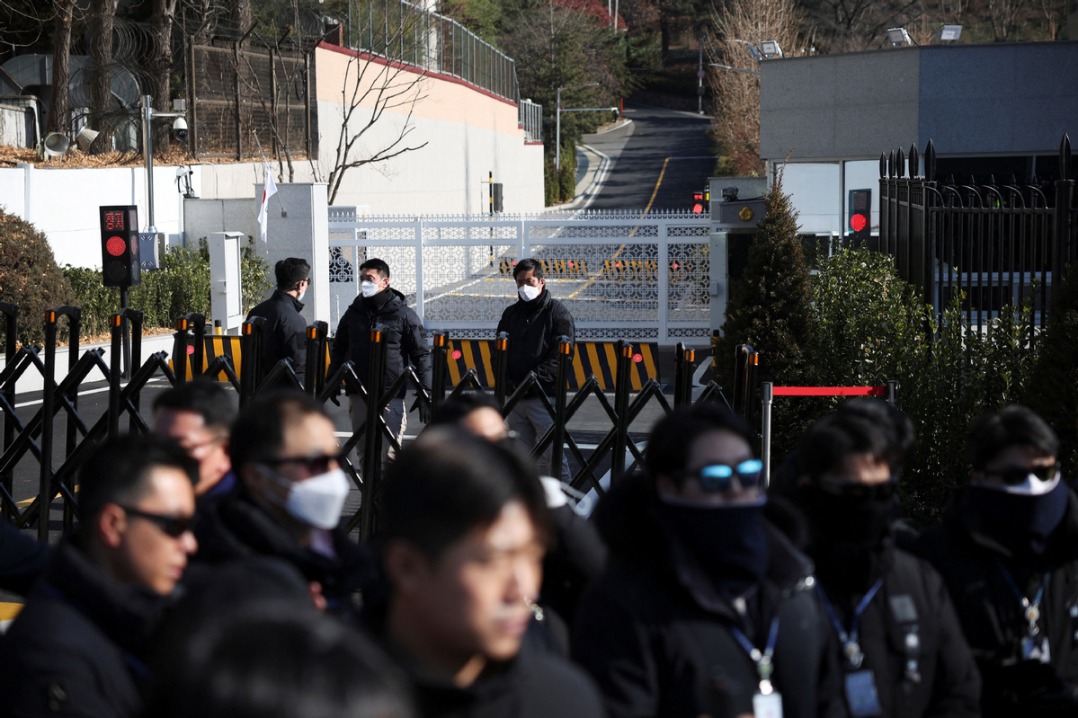Maine lobster business clawed by tariffs

A Maine lobster company had been preparing for a big year of sales to China this year.
"We were gearing up for a really big year," said Michael Marceau, co-owner of The Lobster Co in Arundel, Maine.
But then came China's additional 25 percent tariff on US lobster exports in response to tariffs on Chinese goods imposed by US President Donald Trump.
Marceau told Maine Public Radio that until recently up to 15,000 pounds of live lobster were run through the water tanks at his company, weighed and put in shipping containers every day bound for China.
A renovation to increase the plant's holding capacity had begun but is now on hold.
That's because China's tariff on live lobsters is at 40 percent, and at 35 percent on processed lobster. Chinese buyers can get the same species from Canadian harvesters with only a 7 percent tariff.
"This is instant pain," said Steph Nadeau, chief salesperson and co-owner of the business and Marceau's wife. "A hand grenade. It's not going to be good."
The Lobster Co employs 18 people and gets its lobsters from dozens of lobstermen up and down the coast.
Nadeau said there will be times in the year when Chinese demand could outweigh the tariffs, but not enough to keep the business as it good as it's been. She said that will likely mean layoffs and could force her to buy fewer lobsters from boats that the company's depended on for decades.
Nadeau said she sells 50 percent of her lobsters to the Chinese mainland. "The last order I shipped was last Tuesday. ... "We might live through this fall. We won't live through this winter."
Jeff Bennett, an analyst at the Maine International Trade Center, said Maine sold at least $57 million worth of lobster to China last year.
The Maine Lobster Dealers' Association says that lobster is the state's second-largest export to China. It estimates the loss of revenue at $60 million.
There are about 4,500 licensed lobstermen and distributors in Maine, with an additional 10,000 workers in the industry, according to the association.
Nadeau said her longtime buyer in China is sending her crying-face emojis while forging new relationships with Canadian dealers. She said dealers will soon be "beating each others' brains in" competing to unload product that would otherwise have gone to China.
Tom Adams, CEO of lobster distribution company Maine Coast, told NBC that 20 percent of his exports previously went to China.
"We will lose a crucial part of the market that we've developed over the years here in Maine — losing sales and revenue for our company, possibly making us eliminate jobs," Adams said.
Fifty-four employees work at Adam's company in York, Maine, according to NBC.
Some Maine-based lobster distribution companies say they will be heavily affected by the tariff.
"Europe and China combine to make up anywhere from 30 to 40 percent of our exports every year. So this will be a huge hit to the lobster industry," Annie Tselikis, executive director of the Maine Lobster Dealers' Association, told Portland, Maine-based TV station WGME.
Tselikis said that some distributors are looking at selling lobster more aggressively in other markets.
"We are also looking at opening up new markets or expanding tertiary markets in places like Singapore, Hong Kong, Vietnam, and potentially some untapped markets like Brazil," she said.
Tselikis said some distributors say they might not be able to hold on until the China-US trade dispute is solved.
"Trade policy is very complicated; typically you don't see decisions like this happen overnight. We are hopeful there will be some resolution relatively soon," she said.
Contact the writers at [email protected]

































